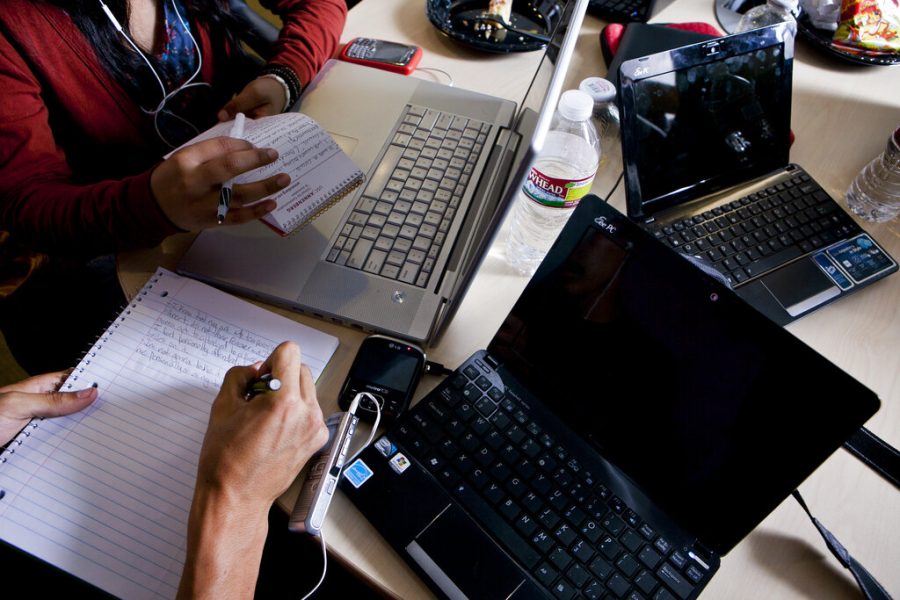Nebraska high school faces censorship after LGBTQ+ articles
Student newspaper at Grand Island high school shut down after June issue
AP Newsroom
Northwest High School’s administration shut down the Viking Saga student newspaper because of what they deemed to be inappropriate LGBTQ stories
The student-run newspaper, The Northwest Viking Saga, which has been running for 54 years, was shut down by the school’s superintendent after the publication of two LGBTQ columns ran in their final issue last June.
The Northwest High School Administration called for the journalists to use birth given names in publication, because the use of their preferred names was deemed controversial.
The student journalists responded to the requirements with two columns for pride month. One featuring the history of pride month and origins of homophobia and an editorial opposing the “Don’t Say Gay” bill according to The New York Times and AP Newsroom.
The administration of Northwest High School claimed the shut down to be an administrative decision, but students claim this violated their first amendment rights. In the New York Times article, a lawyer who works on media law cases in Nebraska said that Vice President of Northwest Public Schools’ claim was discrimination against the students views.
As a result of the controversy, the Student Press Law Center (SPLC) has taken a large part in researching the legality of the situation. Unlike Illinois, Nebraska lacks the student journalist protections that protect the student newspaper staff of Northwest High School. LB 88 was a bill proposed to protect student journalists and media from censorship, but it did not pass, leaving students unprotected to situations like this one.
In Illinois, the Speech Rights of Student Journalists Act protects student journalists from censorship by their school administration regardless of their funding sources or whether the publication is an extracurricular or course taken during the school day. So even if the school funds the newspaper and provides a course for it, they do not have the right to censor journalists for reasonable content. The law does state that student content is not protected if it is libelous, obscene, or incites students to break school rules or laws .
According to The Independent, this was not the first instance of student journalism censorship in Nebraska: in 2009, the administration blocked an editorial about student attendance to school board meetings at Bellevue East High School, as it was contradictory to the principal’s encouragement to attend student council meetings instead of the board meetings. In 2020, another school blocked the publication regarding racial tensions at North Platte High School after a confederate flag was seen on a student’s truck. The Northwest High School administration claimed that the article was a disruption.
According to the Student Press Law Center, voices from Nebraska regarding issues of censorship to student journalists are quite frequent due to the lack of student press protections under law and the large size of the state.
After the shut down of the paper, the former student journalists were relocated to different classes in place of their publication course. They are currently continuing the school year with no student newspaper publication under the rules of the Northwest High School Administration.







































